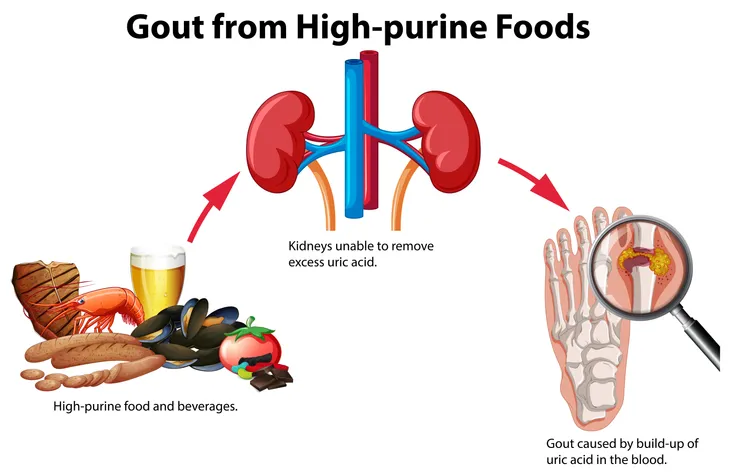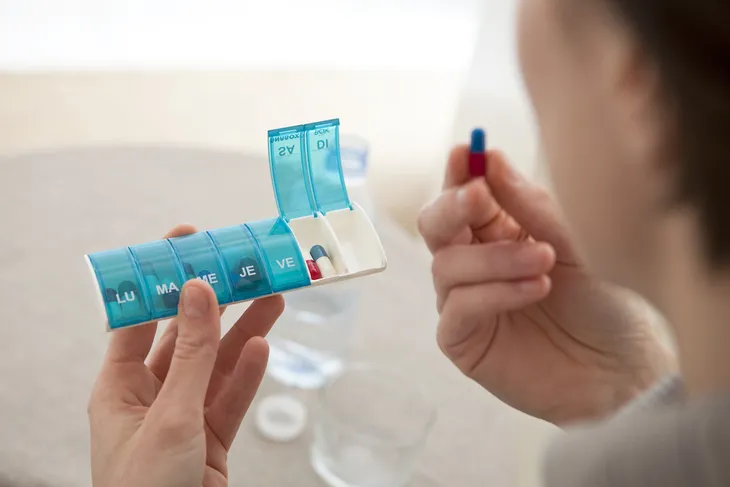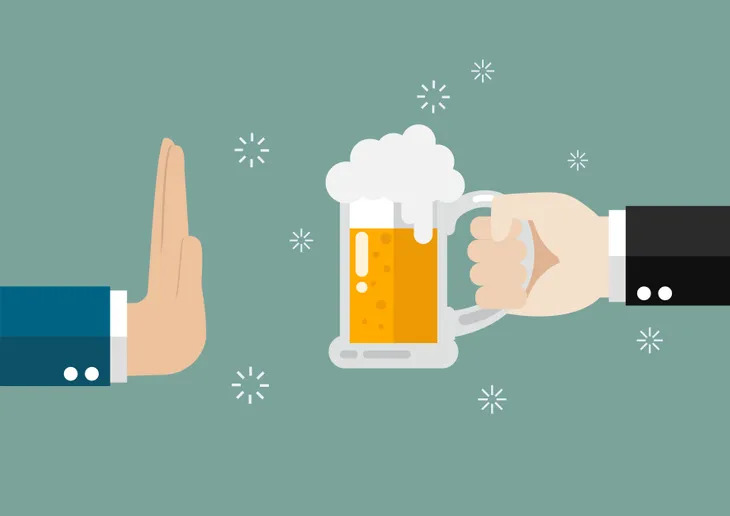Having gout means you always have to stay vigilant for potential gout triggers. This is because gout attacks can happen at any moment. The worst flares happen to patients at the most unexpected times and trust me, those who were prepared in advance were thankful they took the precautionary steps.
As a gout sufferer, you too will want to be ready. As much as possible, you need to prevent a flare from happening ever. Nothing is worse than being woken up to an inflamed toe that hurts so much even the slightest touch causes excruciating pain.
Here are some tips to help prevent gout attacks:
Follow a Low-Purine Diet
When purines are broken down in the body, they turn into uric acid. Too much of this uric acid building up in the joints is what causes those gout attacks. If you have gout, you need to take extra care with your diet making sure you limit your purine intake. Gout patients are often prescribed a low-purine diet consisting mostly of healthy carbs, fat, and little protein.
Why little protein? It’s because most protein sources are from meat which can be high in purines. However, it’s a totally different story when you’re consuming plant-based purines. You don’t have to worry as much when consuming these since the vitamins and nutrients found in these foods counteract the harmful effects of the purines.
If you find yourself reacting badly to a high-purine fruit or vegetable, you can eliminate it from your diet. People are different and one gout patient may be fine eating spinach while another finds that it triggers their flare. Find out what works for you and stick to it. It also helps to work with a dietician who can keep track of these things for you.
Some known trigger foods for gout include:
- Red meat
- Organ meats
- Shellfish like shrimp and lobster
- Refined grains
- Processed foods like chips, snacks, frozen dinners
- Sugary drinks
Cut these items out from your diet in order to prevent future gout attacks from happening.
Drink Lots of Water
Drinking enough water is generally a good habit to keep but it’s even more important when you have gout. The reason why you always want to drink water is because it helps to dilute the uric acid in your body. It also forces you to excrete that excess uric acid via urine. High concentrations are often what trigger a gout attack. Dehydration is another one.
Make sure that you are drinking enough water throughout the day –at least 8 glasses. If you can drink more, even better. Water is not just beneficial for gout but for your other bodily functions as well.
Take Your Medication
A gout diagnosis means you’ll be taking medication for the rest of your life. This is because diet alone will not keep your uric acid levels under control. You have to take medication either because your body either makes too much uric acid or it’s not efficient enough to get rid of it, causing a build up.
Your doctor will prescribe medicines and the type will depend on your situation. Some patients, when they make enough healthy lifestyle changes and don’t experience as many gout flares anymore, will try to go without medicine only to find themselves at the doctor’s clinic later on for an unexpected gout attack.
You should never stop gout medication without asking your doctor first. When you stop taking gout medication, not only does this make you more vulnerable to gout attacks but it’s also an invitation to more.
Avoid Alcohol
Alcohol is a big trigger for gout. It’s not surprising to learn that a gout patient may also consume more alcohol than the average person. This is why it was once called the disease of kings –because only the rich and noble could afford to eat red meat and drink alcohol.
Nowadays, alcohol is available to everyone making gout a more common disease. If you want to prevent gout attacks, you need to limit your alcohol intake. Ideally, it should be eliminated from your lifestyle, but we all know that’s not realistic.
Try to not to go more than 2-3 drinks a week and if you can, be very deliberate with the alcohol you consume. Red wine has been found to be less harmful than any other type of alcohol. If you opt for beer, pick a brand that’s been brewed locally and is organic. You want to avoid mainstream beers as those contain high fructose corn syrup and GMO which not only cause a gout attack but are also harmful to your overall health.
Take Supplements
Most gout patients go beyond changing their diet and taking medication if it means avoiding a really painful gout flare. They might take a supplement which can help support their condition. The most popular one is tart cherry supplements. Cherry fruit has been known to reduce your risk for gout attacks.
You can eat a bowl of cherries everyday, but this may not be possible for some people. This is why they take cherry supplements instead. It contains cherry extract that is just as beneficial as consuming the cherry fruit. It’s been found that people who supplement with it along with their medication reported less gout attacks.
Bromelain is another supplement that gout sufferers can take. This enzyme can be found in pineapple although it’s mostly concentrated in the leaf part of the fruit which is not the most convenient to consume. For the best results, you’ll want to take it in supplement form. Research has shown that bromelain supplements may help with inflammation caused by gout.
Before you go on a supplement regimen, make sure you talk to your doctor first.








